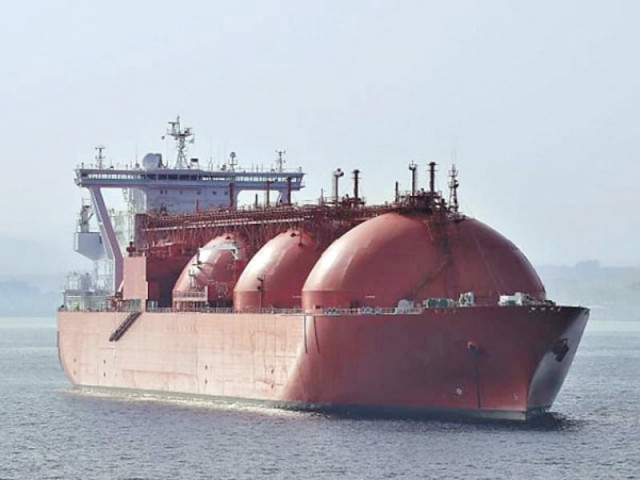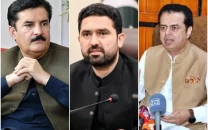OGRA close to determining LNG price
Move will make it easier for state-run companies to import and sell fuel to industrial consumers

Move will make it easier for state-run companies to import and sell fuel to industrial consumers. PHOTO: FILE
The Oil and Gas Regulatory Authority (Ogra) is close to determining the consumer-end price of liquefied natural gas (LNG), which would be a breakthrough in easing constraints over Pakistan’s energy supply chain, a senior official said on Wednesday.
Initially, the move will make it easier for state-run companies to import and sell LNG to industrial consumers who are desperate for fuel to run plants and machineries.
However, it is also expected to work as a benchmark for private players interested in entering the market.
“We have almost completed work on determining the price,” said Ogra Chairman Saeed Ahmed Khan on the sideline of a public hearing on gas tariff.
“It’s a matter of a letter; Pakistan State Oil (PSO) only needs to confirm that it has followed relevant rules while importing LNG.”
Read: Oil ministry says it authorised LNG imports from Qatar
He did not share a timeframe but said the decision will not drag on to the next month. Ogra is not the final authority on consumer tariff, which is notified by the federal government.
Past pricing issues
Pakistan formally entered the global LNG market earlier in the year after the inauguration of a terminal, which uses a Floating Storage and Regasification Unit (FSRU).

While gas was imported and sold to consumers, payment could not be made in absence of a pricing mechanism.
Things were beyond Ogra’s control, insisted Khan. “We needed all members to take a decision on it,” he said, referring to a legal glitch, which says none of the three top offices of the regulator should be vacant for important determinations.
The government has already suggested the parameters on the basis of which Ogra has to decide the price of re-gasified LNG. Beside the cost of LNG, a 4% margin for suppliers - PSO and gas utilities -expense charge will also be added to the price.
PSO, which worked as the principle agency to import LNG, is awaiting payment of around Rs20 billion.
Many people in the petroleum industry say fear of prosecution on hands of an active anti-corruption watchdog has also contributed to the delay in implementation of the LNG project.
But Saeed Ahmed Khan said Ogra, being a quasi-judicial body, has to strictly abide by rules and regulations.
Why are gas prices so high in Pakistan?
Ogra chairman said domestic gas tariff was not reflecting the drop in crude oil price in international markets because of fuel cost from the past being passed on now.
Read: NAB probing LNG terminal contract, admits ETPL chief
For instance, Sui Southern Gas Company (SSGC) is still seeking adjustments of over Rs43 billion in gas tariff to meet its cost that includes the price at which it had bought gas from exploration and production companies.
What really unnerves the businessmen is the cost of gas loses in the vast pipeline system that is passed onto large consumers in shape of a tariff increase.
Slide in exports, especially those of textiles, have made demands for rationalisation of gas tariff even more pronounced.
Published in The Express Tribune, September 17th, 2015.
Like Business on Facebook, follow @TribuneBiz on Twitter to stay informed and join in the conversation.



















COMMENTS
Comments are moderated and generally will be posted if they are on-topic and not abusive.
For more information, please see our Comments FAQ